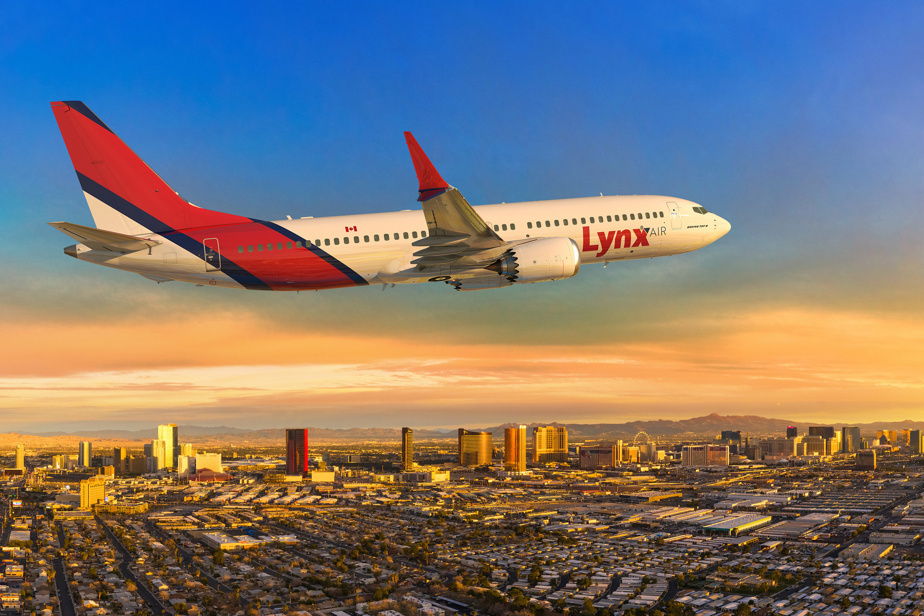After being ignored by Canadian low-cost carriers in recent years, the Quebec market is reversing the trend. There will soon be two at Montréal-Trudeau – a first – with the upcoming arrival of Lynx Air.
A little over a year after its inaugural flight, the Alberta company will land in the metropolis on June 5, an expansion that coincides with the summer season when demand promises to be strong.
“Montreal has always been on our list,” said Lynx President and CEO Merren McArthur in an interview. Our goal is to establish ourselves in regions that are poorly served by very low cost carriers, and Quebec is one of these markets. »
This trained lawyer, able to speak French, knows the airline industry well. Before packing her bags for Calgary, she spent ten years at Virgin Australia, where she turned around regional services in addition to starting a cargo division. She was also at the helm of Tigerair Australia – a low-cost carrier – for almost two years.
With a goal of operating 46 aircraft – Boeing 737 MAX aircraft – by 2028, Lynx is thinking big. But growth must be orderly, says its leader. New markets are added gradually. The fleet of seven aircraft will grow to ten by the end of the year.
Wanting to pay particular attention to the language issue, Ms. McArthur explains in part why Lynx took its time before serving the metropolis.
From Montreal-Trudeau, Lynx will begin by offering direct connections to Vancouver, Calgary and Saint John’s, Newfoundland and Labrador. Through the hub that is the city of Calgary, travelers from the metropolis will have access to several Canadian cities such as Vancouver and Victoria, as well as a few American cities such as Las Vegas, Los Angeles and Phoenix.
The business model of these carriers, known in English as ultra-low cost carriers, is generally based on the use of secondary airports, because their costs are lower and their lower traffic reduces the risks delay.
In Canada, it must be adapted, says the president of Lynx. This explains why the airline is establishing itself in the main airports of the country. For the rest, the strategy does not change: we avoid competing directly with the major airlines to maintain lower prices. This means that services such as baggage check incur additional costs.
“We only offer water on board,” says McArthur. We do not offer food or other beverages, even with payment. There is no entertainment, to keep our business model simple. No one likes food on an airplane anyway. We prefer to say: bring your own meal. »
Of the four low-cost Canadian carriers, Lynx and Flair Airlines will be the only two with a Quebec presence. In the case of Flair, his arrival dates back to the summer of 2021. Swoop, a low-cost subsidiary of WestJet, as well as Canada Jetlines are absent.
Unlike Europe and the United States, low-cost carriers have been slow to establish themselves in Canada. It remains to be seen whether this time will be the right one.
“The question is what the response will be from Air Canada and the major carriers,” said aviation expert and McGill University lecturer John Gradek. I have a feeling that Air Canada is repositioning itself towards international routes and towards the American market and that it will let the smaller companies compete at the bottom of the market. »
Lynx counts among its shareholders the private investment firm Indigo Partners LLC of the businessman Bill Franke, also present in low-cost companies like Frontier Airlines and Wizz Air. That works in favor of the Alberta business, Gradek believes.
“I think we have someone who is going to want to stay in Canada,” he said. We have a competitor with a lot of knowledge in terms of cost management in the airline sector. »
